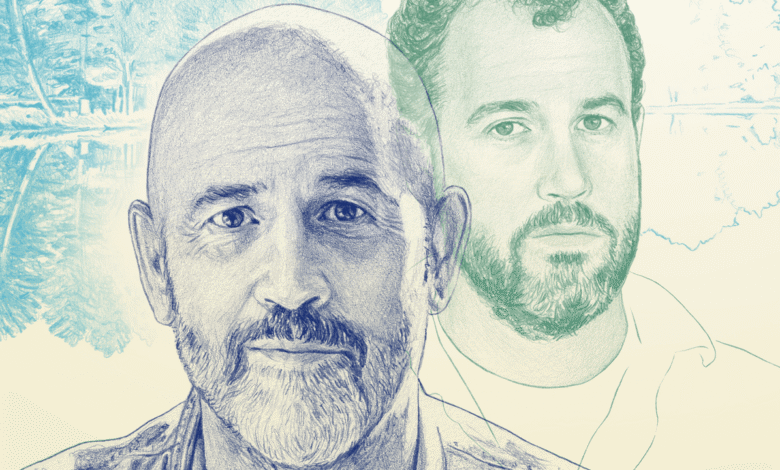James Frey Swears His New Book About Very Rich, Poorly Behaved People Isn’t Based on Anyone Real

If James Frey’s road has been a rocky one, at least the bumps were diamonds. In the two decades since he got an Oprah dressing down when it turned out he’d fabricated parts of his mega-best-selling memoir, A Million Little Pieces, he founded and sold a booky content farm, dabbled as CEO of an esports company, and collaborated with Lena Waithe on the Queen & Slim story. Also in those years: the rise of autofiction, the death of truth, and a newly unslakable thirst for IP skewering (while sort of celebrating) the ultrarich.
Enter: Next to Heaven (Authors Equity), Frey’s first new book in six years, a Connecticut sex romp–cum–murder mystery with what he calls “big nods” to Jackie Collins, Danielle Steel, and Tom Wolfe. Accordingly, its characters would feel at home in the White Lotus extended universe: a cash-poor WASP art dealer, an aggro hedge funder, a Bitcoin-trading drug dealer who idolizes Eric Trump and Kanye West. That their physical descriptions read like a central-casting call sheet (the women: “tall, thin” or “thin, petite,” with “deep blue eyes” or “bright hazel eyes” or “big brown eyes like mudpies”) doesn’t really matter—and by the introduction of a “tall, buff, black-haired blue-eyed steaming hunk of Connecticut beefcake,” they ascend to something like camp.
The book, to which Frey sold TV rights before the actual manuscript, takes place in fictional New Bethlehem, which bears a striking resemblance to his current home of New Canaan. It has caused something of a stir among members of his social set. At a party, he says, one unwitting attendee whispered to his girlfriend (a countess and equine therapist) that they’d heard the novel was “all real.” He swears the characters aren’t based on actual people—although, of their art collections, “I’ve been in enough houses of hedge fund billionaires to know what they tend to buy.” (For other details he turned to ChatGPT, searching for “the most expensive scotch in the world, or most expensive silverware in the world.”)
The irony of readers sifting for facts isn’t lost on Frey. “If I’m published as memoir or nonfiction, everybody goes through it and tries to figure out what’s not true,” he says. “If I publish it as fiction, everybody goes through it and tries to figure out what is. I sit in the middle and say, ‘I wrote a book. I hope you dig it.’ ”
Vanity Fair: What were your primary influences going into this?
James Frey: During the pandemic, I had been asked to read Hollywood Wives by Jackie Collins and potentially turn it into a television show. And I didn’t end up doing it, but I loved the book. The reading experience of it made me think, You know what, man, maybe you should just write a fun book. Write your version of Jackie Collins. Write your version of Danielle Steel. If I was going to say other books had an influence on it, it would probably be Tom Wolfe and, to a lesser extent, Bret Easton Ellis.
So you started writing it during the pandemic?
No, I didn’t, actually. I was writing another book during the pandemic that I called 477. That was about the ongoing collapse of the United States. And my agent read it and he was like, “I love this, but if you publish it, you’ll probably have to leave the country.” And so last January, I wrote this book and I wrote it really fast. I wrote it in about two months.
Has there been any anxiety in New Canaan leading up to publication?
I think there is some anxiety in the town. When I go out now, it gets brought up everywhere I go. “Oh, I heard a book’s coming out.” I very, very deliberately did not base a single character on anybody real. I always think it’s shitty when people use books to settle scores, and I don’t do it. That’s a lot to put on somebody, man. Do some representation of them in a novel without them knowing about it.
But my girlfriend and I were at a party the other night and she was talking to somebody and they were like, “Oh, that’s James Frey over there.” And she started laughing and she was like, “Yeah, he’s friends with Martha.” Martha was the woman having the party. And the woman was like, “I heard he just wrote this scandalous book that’s based on real people.” And my girlfriend was like, “No, no, it’s not based on anybody real.” And she was like, “No, I heard it’s all real.” And my girl was like, “No, I’m his girlfriend. I live with him. It’s not.”
Does it feel at all ironic to have written a fictional book that now people are very concerned is real?
Source link

